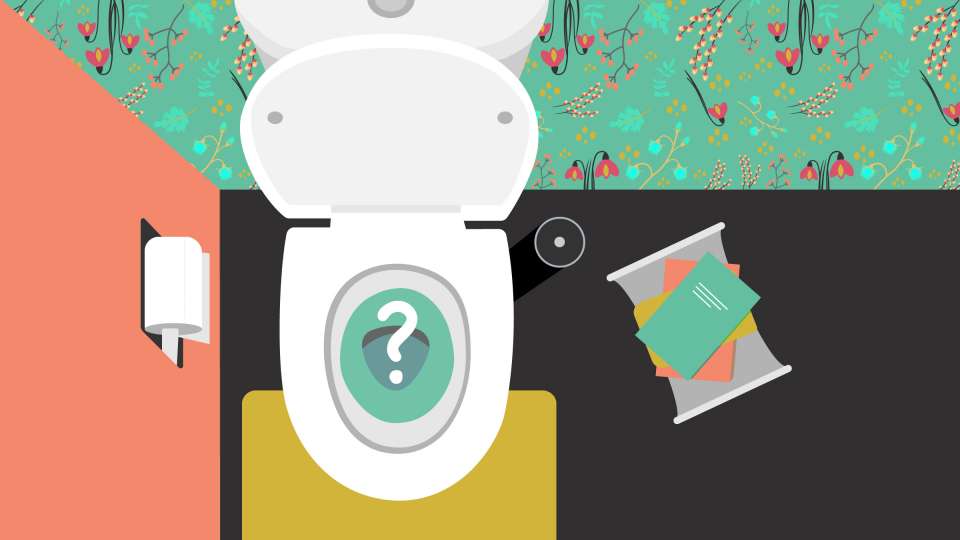
Does even the thought of talking about your poop make you blush? It may be uncomfortable, but keeping tabs on your number twos can help you learn a lot about your body. The color and consistency of your poo can change depending on what you eat and drink, and can also serve as your body’s way of letting you know something isn’t right.
Here are six things your poop says about your health—and when changes in your stool could signal a serious health problem.
If Your Poop Is… Painful to Pass
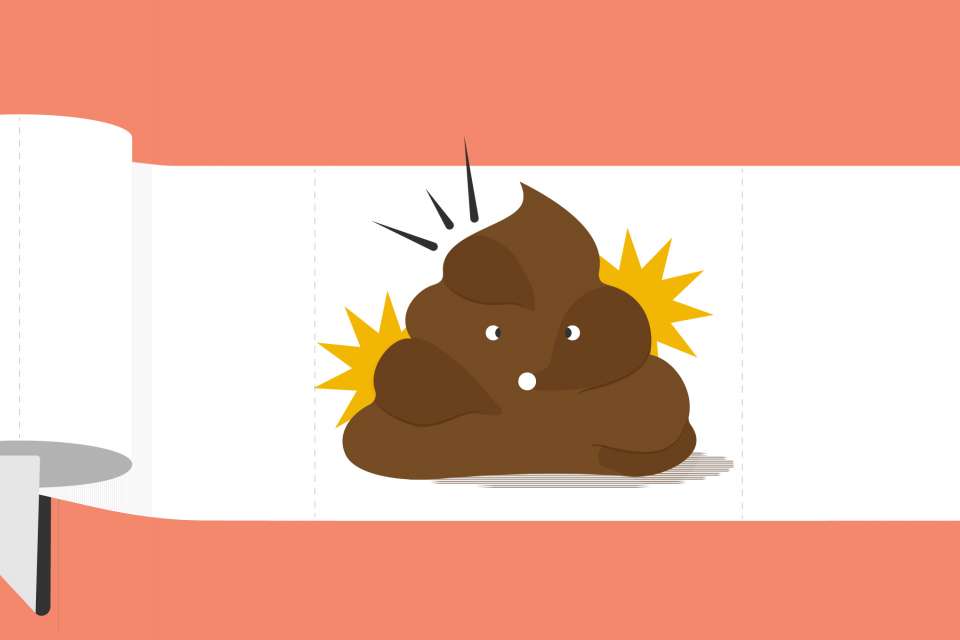
If it’s painful to do your business, you may have irritable bowel syndrome (IBS), says John Inadomi, M.D., a gastroenterologist who practices at the University of Washington Medical Center and Harborview Medical Center. People with IBS often experience abdominal pain with either constipation or diarrhea, but the pain always gets better after a bowel movement.
“IBS certainly interferes with your quality of life, but it’s not a dangerous condition,” says Inadomi. “If the pain doesn’t go away after a bowel movement, that’s out of the ordinary and we’d want to evaluate that.”
Pain that doesn’t go away paired with diarrhea may be a sign of inflammatory bowel disease (IBD), a spectrum of inflammatory diseases that includes Crohn’s disease and ulcerative colitis, says Inadomi. These conditions require treatment by gastroenterologists who have specialized knowledge of the disease complications and how to manage it.
In rare cases, the pain could be a symptom of colorectal cancer. Once more common in older adults, colon and rectal cancer are on the rise among people in their early 50s and younger, research shows.
If Your Poop Is… Red
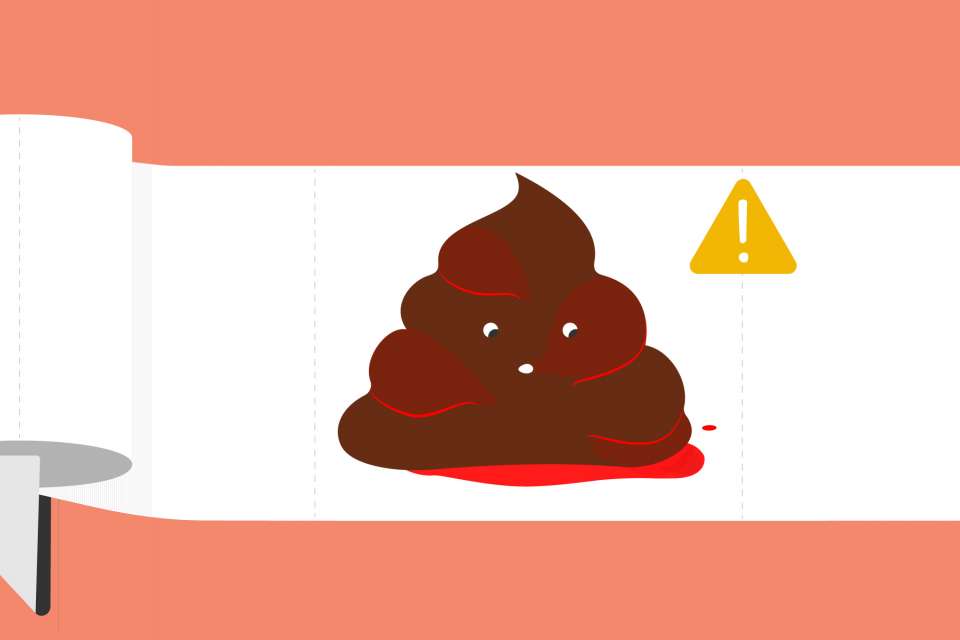
If your poop is streaked with red, it means there’s blood in your stool. For the majority of people, this is just hemorrhoids, says Inadomi. The swollen and inflamed veins in the rectum and anus—usually from straining when going to the bathroom or from pregnancy—can be uncomfortable and itchy, but aren’t dangerous.
Red poop could also be a sign of lower intestinal bleeding, which is a symptom of colorectal cancer. And because of the rising number of cases of this type of cancer in young people, Inadomi says it’s better to play it safe. He recommends anyone with bleeding get a colonoscopy to rule out cancer.
If Your Poop Is… Black
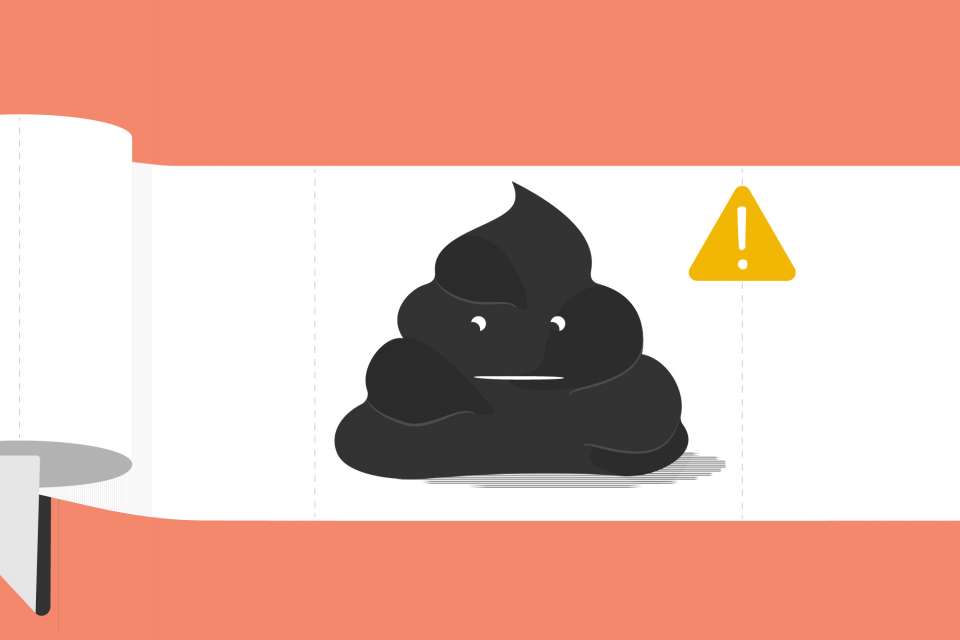
Black stool has a range of benign to more serious meanings, says Inadomi. Certain medications, such as Pepto-Bismol, can cause black stool. But black poop could also be from a bleed in the esophagus, stomach or small intestine. When blood comes from a higher source than the colon, it has more time to be transformed by chemicals, bile and other secretions that make it change color, he says.
Ulcers, esophagitis, and upper intestinal cancers, like stomach cancer, can all present with black stool, says Inadomi. An upper endoscopy to look for ulcers or cancer is almost always recommended for patients whose poop is black, he says—unless they know it’s from a drug.
If Your Poop Is… Watery
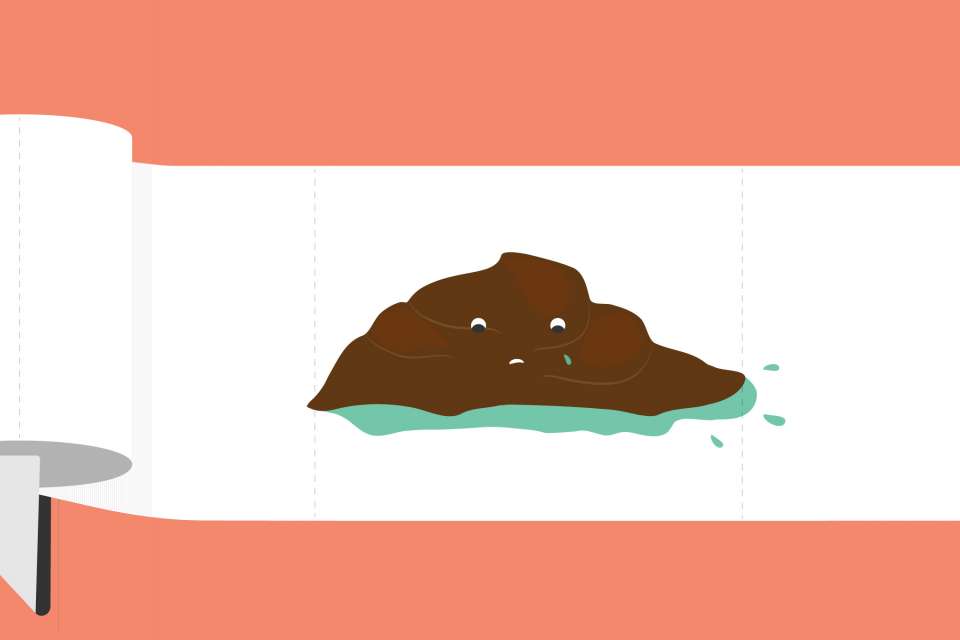
Your gut microbiome could be out of whack, says Will DePaolo, Ph.D., director of the UW Medicine Center for Microbiome Sciences & Therapeutics. Healthy gut bacteria can help keep your plumbing running the way it should. But when you don’t have enough or the right kind of bacteria in your belly to help properly digest food, what you eat can pass through you too quickly before solid stool is able to form, he says.
You might also blame your morning coffee habit: Caffeine can speed up gut motility, the stretching and contractions of muscles in the gastrointestinal tract that stimulate bowel movements. This is why some people run to the bathroom after their morning cup.
“Putting something into the system that speeds up transit is going to lead to more watery and loose stools than if they were to drink water or something else in the morning,” says DePaolo.
Having very soft and runny stool from time to time is not usually a sign of a health problem, says DePaolo. However, talk with a healthcare provider if you’re having frequent diarrhea, as it could be a sign of an infection or food sensitivity.
If Your Poop Is… Small and Pebbly
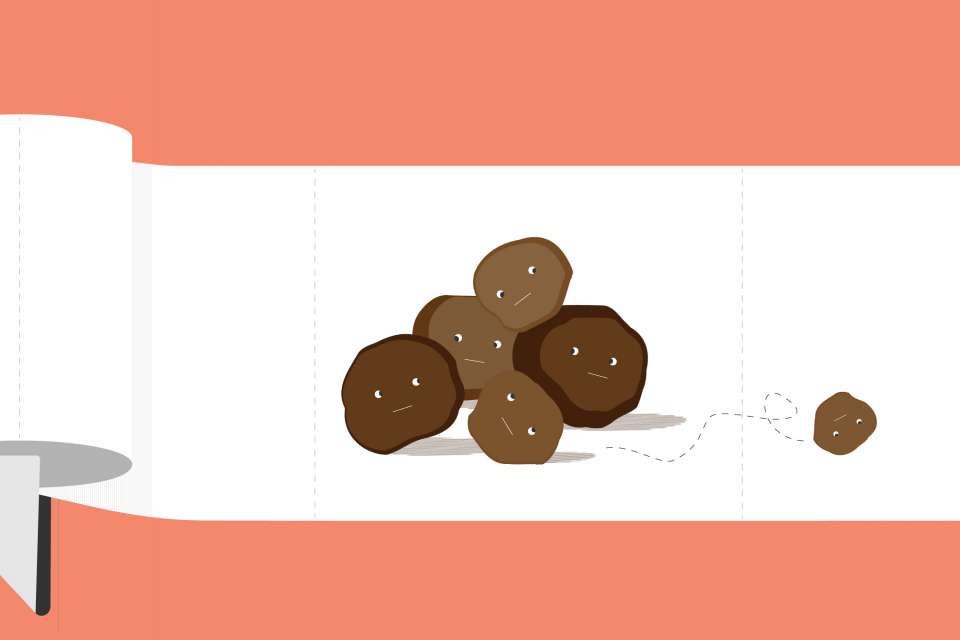
Is your poop looking more like rabbit poop than human stool these days? You may want to dust off your reusable water bottle.
Normally, your body draws water out of the large intestine for hydration. But when you don’t drink enough, it starts to draw it out of the stool in the colon, says DePaolo. That’s why dehydration is linked with constipation: the stool gets so hard and dried out that it’s difficult to pass.
The consistency of poop is also dependent on gut motility, explains DePaolo. With slow motility, your stool sits in the colon for a longer period of time. This gives the body more time to draw out water and nutrients, which can result in small, hard turds. Motility can be affected by exercise, diet and your microbiome, among other things, he says.
If Your Poop Is… Really Stinky
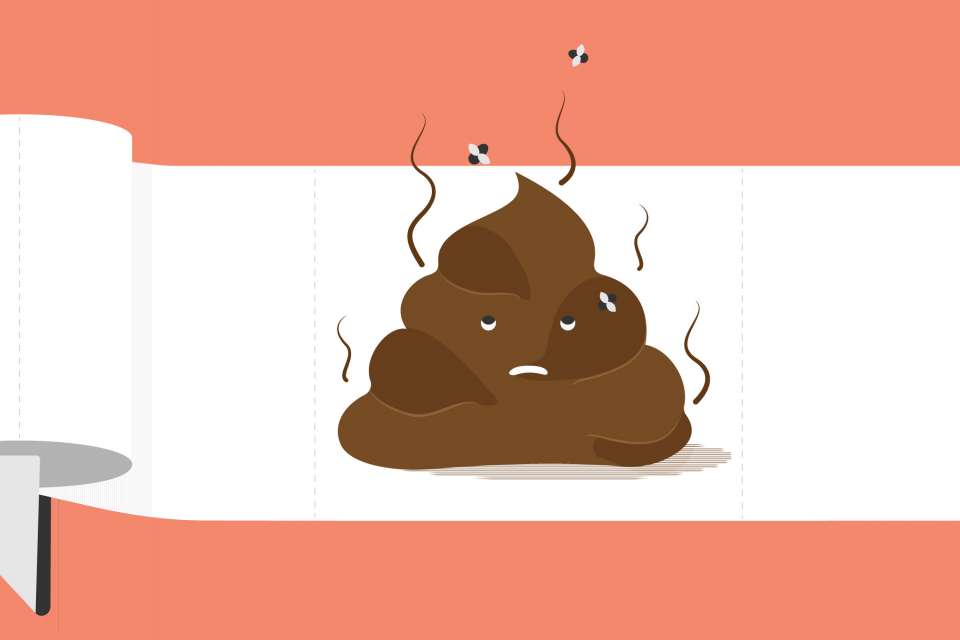
Reaching for the matches after you go number two? It could be the amount of protein in your diet, says DePaolo. Eating lots of protein slows the transit time from gut to bowl, he says, and just like anything else—your compost bin, your trash, two-week-old leftovers in your fridge—the longer things have to decompose, the smellier they get.
The amount of protein you need to eat on a daily basis depends on lots of things: how active you are, your age and how much you weigh, to name a few. For reference, the Dietary Guidelines for Americans recommends women who eat 2,000 calories a day consume 46 grams of protein per day.
The Bottom Line
No one really likes talking about poop, but it’s important to be open and honest with your healthcare provider, says Inadomi. Changes in stool color, frequency or consistency could be totally fine, or they could be warning signs that something isn’t quite right with your health.

 Healthy ideas for your inbox
Healthy ideas for your inbox





